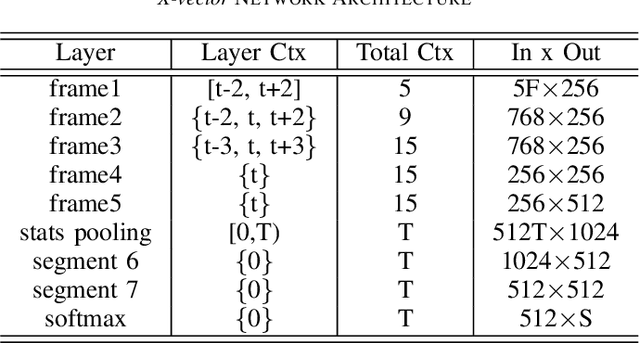Pathological speech detection using x-vector embeddings
Paper and Code
Mar 03, 2020



The potential of speech as a non-invasive biomarker to assess a speaker's health has been repeatedly supported by the results of multiple works, for both physical and psychological conditions. Traditional systems for speech-based disease classification have focused on carefully designed knowledge-based features. However, these features may not represent the disease's full symptomatology, and may even overlook its more subtle manifestations. This has prompted researchers to move in the direction of general speaker representations that inherently model symptoms, such as Gaussian Supervectors, i-vectors and, x-vectors. In this work, we focus on the latter, to assess their applicability as a general feature extraction method to the detection of Parkinson's disease (PD) and obstructive sleep apnea (OSA). We test our approach against knowledge-based features and i-vectors, and report results for two European Portuguese corpora, for OSA and PD, as well as for an additional Spanish corpus for PD. Both x-vector and i-vector models were trained with an out-of-domain European Portuguese corpus. Our results show that x-vectors are able to perform better than knowledge-based features in same-language corpora. Moreover, while x-vectors performed similarly to i-vectors in matched conditions, they significantly outperform them when domain-mismatch occurs.
 Add to Chrome
Add to Chrome Add to Firefox
Add to Firefox Add to Edge
Add to Edge